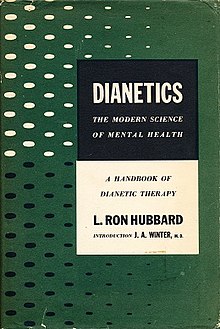The 30-Second Trick For Dianetics
The 30-Second Trick For Dianetics
Blog Article
The Facts About Dianetics Uncovered
Table of ContentsFacts About Dianetics UncoveredAn Unbiased View of DianeticsAll about DianeticsRumored Buzz on Dianetics
I could not ever not wish to get anything that comes to mind for you- if it was otherwise, I would not be resting right here with you, doing this. I not only can never ever have an issue, or not want to listen to something that enters your mind for you, but I'm entirely anxious to recognize every concept, every thought, every picture or feeling that arises or shows up for you- do not ever believe otherwise, and if for some reason you do, please simply allow me understand! Occasionally, you may have a thought, and picture, concept or incident pop up that does not appear to answer the question, or associate with it, yet nevertheless, constantly do tell me about it, and as we continue, the significance will emerge for you.This is fundamental in the basis of processing, and the subject of this conversation: the basic functions of the counselor and the client: The standard role of the therapist is, unlike "basic training", not to regulate, which implies to apply and/or prevent, yet to instead function from the basis of EMPOWERING THE CUSTOMER.

What Does Dianetics Mean?
John Mcmasters shared this basic fact wonderfully well in one of his talks on Power processing, where he clarifies just how he was asked what this "special knack" was that he had for offering such wonderful sessions; he had to consider that for a moment, and identified that it was what he had not been doing, as well as what he was doing: he wasn't reviewing, evaluating, computing, or in truth, creating any kind of thoughts, let alone verbal expressions, after offering the command and while waiting for the PC to finish their solution to their fulfillment; he was, just and only, being existing with the computer, and completely interested.
The duty of the therapist, showed; that was his "special knack". I have had my own experience which instructed me this well, extremely early in the game. In 1982, having lately completed my training and internship on New Age Dianetics, I was running this on a COMPUTER, and there was a factor in the session where (being a little bit damp behind the ears not yet having lots of hours under my belt as a professional redirected here auditor) the PC seemed to be "taking also lengthy" to reveal anything vocally after I provided him a command.
This trick became the most important contribution that John ever made to the subject of therapy or auditing (Dianetics). In my simple viewpoint, it is the best payment that anyone has ever before made to these subjectsthe application is entirely non-judgemental, non-evaluative, and lacking any idea, suggestions or opinion.no preconditioned agenda for individuals, or 'degrees' that they must do
In Idenics, the only resource of info about a customer is the specific customer. In Scientology we prided ourselves on not examining for individuals. Yet all that actually indicated was that the auditor did not VERBALLY review for the PC in session. The registrars and values police officers evaluated for the computer.
The Facts About Dianetics Revealed

Anybody that had ever seen John audit could not aid yet notice a distinct high quality in his auditing."The client's fundamental role is to be there with the function of relocating the direction of their spiritual objectives, and to easily and fully share and experience whatever materializes for them in answering the questions and executing the instructions in the handling.
This is something to process as required. However likewise, people regularly have previous experience and/or brainwashing in auditing/processing which, in some means, and to some levels, really misdirects them right into attitudes, ideas and actions patterns that stop the use this link complete realization of these roles, therefore they will tend to inhibit the expressing of what comes to mind, as in the examples offered over. * The initial, and possibly primary instances of mis-indoctrination causing less than entirely smooth and effective sessions, can be found in certain facets of the training routines, or "TR's":"TR's" are typically a person's first, or at the very least early, experience in Scientology, and while I will certainly go on to explain what I view as the problems in idea and method, nonetheless, have a tendency to be substantially healing, done as they are offered (Hubbard find more firmly insists that "TR's are not processing, they are training", but factually, they are both handling AND training)
Alan Walter made similar monitorings, and enhanced on these with his "Presence Processes". There is no "flunking", and no denial of the truth of this being processing. The focus, as it must be, is on experiencing the various other person's existence. All the manifestations which get a "flunk" in doing "TR-0" are merely the being's efforts to withstand the other individual's presence, and rather than being pestered and nagged with "Flunk", which imposes "failing!" on the being, one merely requires to be motivated to "stick their feet in the water a little much deeper", to significantly refurbish their capability and determination to totally share and experience "being below", or "presence", with others.
The Only Guide to Dianetics

Report this page